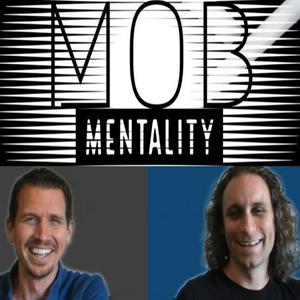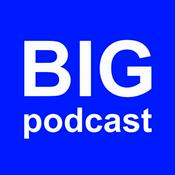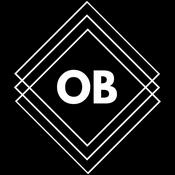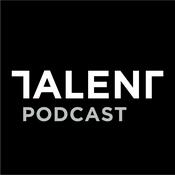125 episodios
Collaborative Software Design in Practice: Kenny (Baas) Schwegler on DDD, EventStorming, and Real Team Learning
27/1/2026 | 48 minJoin the Mob Mentality Show for a stimulating conversation with Kenny (Baas) Schwegler, co-author of Collaborative Software Design, as we explore the intersection of software architecture, team collaboration, and organizational culture. In this episode, we uncover how collaborative software design and Domain-Driven Design (DDD) transform software delivery from a siloed, top-down process into a shared problem-solving experience that integrates business, engineering, and user perspectives to get all the data on the table.
Kenny shares practical strategies for running collaborative modeling sessions, including EventStorming, example mapping, and guerrilla modeling. Learn how to engage stakeholders and developers in the same room, foster shared understanding, and evolve systems iteratively while navigating complex organizational dynamics. Whether you’re designing greenfield systems or improving brownfield applications, these techniques empower teams to reduce miscommunication, avoid groupthink, and make better design decisions faster.
We also dive into the cultural and systemic challenges that impact software delivery, including implicit hierarchies, patriarchal structures, and unspoken decision-making rules. Discover how amplifying quiet voices, balancing power dynamics, and creating psychologically safe environments directly improve software outcomes. Kenny explains how effective collaboration goes beyond tools and patterns—it’s about shaping a culture where diverse expertise is actively leveraged and trade-offs are surfaced transparently.
Key takeaways from this episode include:
- How collaborative software design bridges business understanding and technical feasibility.
- Practical methods to introduce DDD, even in non-collaborative environments.
- Techniques to iteratively discover, model, and implement solutions in complex domains.
- Strategies to neutralize hierarchy and amplify underrepresented perspectives in decision-making.
- Insights on integrating team autonomy, Team Topologies principles, and flow-based development for continuous improvement.
This episode is essential for software architects, product leaders, developers, and anyone invested in high-performing, collaborative teams. Gain actionable insights on designing software as a collective endeavor, aligning stakeholders, and creating systems that support innovation, adaptability, and inclusion.
Video and Show Notes: https://youtu.be/Mqbm2kwpsHo- What happens when Agile, Extreme Programming, and Test-Driven Development meet a world dominated by hardware, graphical programming, and binary artifacts?
In this episode of the Mob Mentality Show, we’re joined by Sam Taggart to explore what it really takes to introduce modern software engineering practices into environments like LabVIEW, embedded systems, and industrial software teams. These are contexts where deployment can be slow, feedback loops can be expensive, and “just refactor it” feels like it is not an option.
We dig into why applying XP, TDD, mob programming, and continuous integration looks very different when your software is tightly coupled to physical devices, firmware, and test equipment. Sam shares practical insights on adapting Agile ideas so they actually work in hardware-constrained environments, rather than forcing patterns designed for web apps onto teams that live in a very different reality.
A major theme of the conversation is change. How do you sell new engineering practices to skeptical teams? How do you introduce better ways of working without triggering resistance or fear? And how do you help organizations move forward when legacy code, specialized tools, and long-established habits get in the way?
We also spend time on a deceptively simple but critical idea: knowing what “good” looks like. From testing strategies and code quality to team collaboration and delivery confidence, having a clear vision of good engineering makes it far easier to experiment with better practices and avoid cargo-cult Agile.
This episode is especially relevant if you work with LabVIEW, embedded systems, firmware, industrial or hardware-adjacent software, or if you’re leading teams where Agile adoption feels harder than the books make it sound.
Topics include:
- Applying TDD and XP in graphical, binary, and legacy codebases
- Mob programming and collaboration in hardware-heavy environments
- Continuous integration and delivery when deployment is constrained
- Introducing Agile ideas without alienating experienced engineers
- Reducing risk while improving feedback and quality
- Helping teams see and aim for better engineering outcomes
Video and Show Notes: https://youtu.be/Kxzn_2aYMIM Fully Engaged Mob vs Disengaged Mob: How Team Engagement Directly Impacts Software Delivery
06/1/2026 | 18 minWhat actually separates a fully engaged mob from one that feels flat, quiet, or stuck? And why does that difference matter far beyond team morale?
In this episode of the Mob Mentality Show, we explore how team engagement directly impacts software delivery, learning, and long-term sustainability. Drawing from real mob programming experiences—ranging from high-energy, large-group collaboration to small teams struggling with disengagement—we unpack the patterns behind why engagement rises or fades.
Rather than offering a one-size-fits-all playbook, this conversation treats engagement as a systems and complexity problem. We discuss how engagement shows up differently in quiet vs. loud mobs, how personal context and learning overload can influence participation, and why disengagement is often a signal—not a character flaw.
You’ll hear practical ways facilitators and teams can probe, sense, and respond when engagement drops, including:
- The difference between intrinsic and extrinsic motivation in mob settings
- When small format changes help—and when they’re only a temporary band-aid
- How psychological safety affects learning, contribution, and retention
- Techniques for surfacing hidden confusion without negatively calling people out
- Why repeated work and lack of progress quietly drain motivation
- When disengagement points to deeper systemic or environmental issues
We also connect engagement to outcomes leaders care about: flow, learning speed, delivery quality, and business impact. This isn’t about forcing fun or “rah-rah” energy—it’s about creating conditions where people want to contribute, can contribute, and see the value of innovating together.
Whether you’re a developer, facilitator, tech lead, or engineering manager, this episode offers concrete signals to watch for and experiments to try—while respecting the complexity of human systems.
If you’ve ever wondered why one mob feels alive and another feels exhausting, this conversation can help you see what’s really going on beneath the surface.
Video and Show Notes: https://youtu.be/P0-PWstQhqk- Escape Room Style Mobbing is a real collaboration pattern many teams run into, even if they do not have a name for it yet. In this episode of the Mob Mentality Show, we break down the spectrum between two very different mobbing modes: fast, noisy, interruption-heavy “escape room” mobbing and the quieter, deliberate, research-first approach some teams rely on instead.
Across the conversation, they share concrete examples from dozens of mobs they have been part of over the years. You will hear what actually happens in high-energy mobs that optimize for speed, flow, and rapid experiments. You will also hear what shifts when a team leans into slow, deep thinking, deep learning, cautious change, and single-threaded communication.
The episode digs into the real tradeoffs:
- When interruptions accelerate discovery and when they create friction or waste
- Why some teams thrive in a “pull everyone in now” environment while others feel overwhelmed or blocked by the noise
- Why the same people might switch styles depending on context, psychological safety, or the kind of problem they are solving
You will also hear how teams manage learning in each mode, how business expectations can map with the mob’s behavior, how different personalities respond to high-octane collaboration, and why both styles can be healthy when used intentionally in the right context rather than by accident.
If you work on Agile teams, practice Mob Programming, care about delivery flow, or you simply want to understand why your team’s collaboration energy swings from chaotic to quiet, this episode gives you language and mental models you can use right away.
FYI: Video and Show Notes: https://youtu.be/kZ9yH5Fibn4 - In this Mob Mentality Show episode, we sit down with Abid Qureshi for a candid and eye-opening look at what Agile Software Development was meant to be versus what the industry turned it into. If you’ve ever wondered why “Agile” feels bloated today, why teams still struggle to adapt quickly, or why universities are still teaching outdated models like Waterfall, this conversation will hit home.
Abid shares his perspective on why the original movement focused on lightweight methods, experimentation, and uncovering better ways of developing software. He explains how the software industry drifted toward heavyweight processes and off-the-shelf frameworks, and what gets lost when organizations treat Agile as a set of fixed best practices (independent of a code context) instead of an ever evolving software craft. He also challenges long-held assumptions about technical excellence, design, and the true sources of agility in modern software development.
We dig into:
- The contrast between early agile software development and what “Agile” represents today.
- Why the title “Agile Manifesto” is misleading and what the document was actually about.
- How advances in technology, object-oriented programming, automated testing, and continuous integration made genuine agility possible.
- Why real adaptability comes from reducing the cost of change, not adding more process.
- The danger of scaling up bureaucracy instead of scaling down and improving engineering practices.
- How non-technical contributors sometimes unlock unconventional, high-value ideas that technical experts overlook.
- Why many higher education programs still teach waterfall-style thinking and how that hurts new developers entering the industry.
- The missed opportunity for universities to lead innovation in software development instead of echoing outdated industry norms.
If you care about XP, Lean thinking, software craftsmanship, technical excellence, or getting back to the heart of agility, this episode offers a practical and refreshing reset. Abid’s stories and insights challenge the assumptions that hold teams back and point toward a more grounded, engineering-driven approach to modern software development.
Video and Show Notes: https://youtu.be/nJI-veSJdkQ
Más podcasts de Economía y empresa
Podcasts a la moda de Economía y empresa
Acerca de The Mob Mentality Show
Chris Lucian and Austin Chadwick discuss all things agile and product development from a mob programming perspective.
Sitio web del podcastEscucha The Mob Mentality Show, The Diary Of A CEO with Steven Bartlett y muchos más podcasts de todo el mundo con la aplicación de radio.es

Descarga la app gratuita: radio.es
- Añadir radios y podcasts a favoritos
- Transmisión por Wi-Fi y Bluetooth
- Carplay & Android Auto compatible
- Muchas otras funciones de la app
Descarga la app gratuita: radio.es
- Añadir radios y podcasts a favoritos
- Transmisión por Wi-Fi y Bluetooth
- Carplay & Android Auto compatible
- Muchas otras funciones de la app


The Mob Mentality Show
Escanea el código,
Descarga la app,
Escucha.
Descarga la app,
Escucha.








































